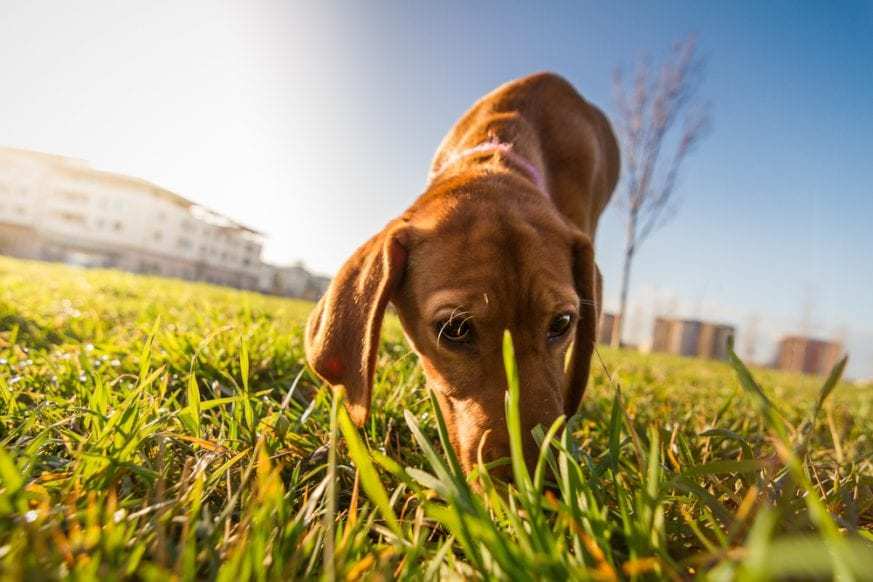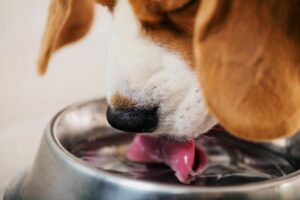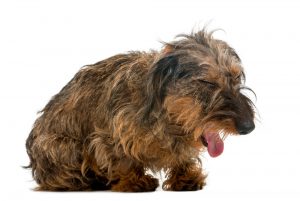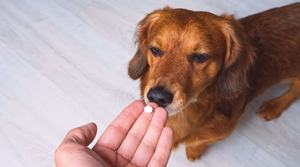
Reviewed & Fact-Checked by
Dr. Chyrle Bonk
Veterinarian (DVM)
Learn more about our Veterinary Review Board »
Flies are irritating pests that can ruin a picnic or generally create nuisance wherever they go. One thing they do have going for them is that they are pretty good at being a form of entertainment for dogs. Many dogs love to chase and eat flies whenever they are around, and as gross as that may seem is both safe and normal.
Flies are rather yucky for humans, but they are safe for pets to eat if they are able to catch them and do so on occasion. Flies do not bite or sting like some insects, which makes them safe to eat. Though flies can carry bacteria that are harmful to humans, those same germs will not be able to survive in a dog's mouth.
Many breeds, such as sporting and hunting dogs, are more prone to fly-catching, especially if they happen to be annoyed by the insect's behavior. For some dogs, chasing and eating flies becomes an obsession.
Since the actual taste of these flying pests is still up for debate, let’s take a deep dive into why dogs like to eat flies and what you can do to keep your canines from making a regular meal out of them.
Can Dogs Eat Flies?
Seeing your best canine friend swallow a fly can be unsettling, but it is not harmful.
Houseflies, horseflies, fruit flies, drain flies, and even gnats are all harmless for pets when consumed. Even if your dog happens to down a literal bowl full of flies, the worst that will happen is that they may get a temporary bought of gas, vomiting or an upset stomach.
The only time you need to worry about your dog eating flies is if they start eating other flying insects that are poisonous or may sting, or are affected by an insecticide.
Thus supervise your dog when outdoors if he's prone to chasing flies and other flying critters and be cautious of using pesticides and other poisons in and around your home.
Take Note
If your dog ate a fly and is showing symptoms or is unwell, call your vet or the pet poison control line at: (888) 426-4435
Why Do Dogs Like To Catch and Eat Flies?
Fly-biting or Fly-snapping has a few different causes.
In most cases, it is simply a biological imperative that is inherent in specific dog breeds. Those in the hunting or sporting lines are more prone to chasing flying insects like flies or even bees and wasps.
For other dogs, it is simply a compulsion in which they have very little control over their choice of chasing or even consuming flies that come in their path. Dogs that are obsessed may often bark without stopping, get fixated on certain toys or spend a lot of time chasing their tail.
Is There A Cause For Compulsive Fly Chasing?
According to most veterinarians, there is no root cause for compulsive behaviors in dogs other than genetics or neurological defects.
In most cases, these compulsive disorders such as chasing flies are harmless. If you notice that your canine is chasing flies or snapping at insects that don’t exist, it may be a sign of an underlying issue.
Focal seizures and complex partial seizures have been known to manifest hallucinations in dogs, though epilepsy is also another common cause.
Fly biting behavior also has been identified as a symptom of syringomyelia, a neurological disorder that's common in certain toy breeds such as Cavalier King Charles Spaniel, Brussels Griffon, Chihuahuas, Maltese, Staffordshire Bull Terrier and Yorkshire Terrier.
Fly-biting seizures are a specific type of focal seizure, in which a dog snaps at the air like he is biting at invisible flies.
Can Eye Problems Cause Phantom Fly Chasing?
Rapid eye movements or problems with a dog's vision can also cause a dog to see and chase phantom flies. Usually, this happens when there is some type of dirt on the outside or debris floating in the eye that hinders a dog's line of sight.
These vitreous floaters may seem like an annoying insect or fly to your dog which they may try to catch or eat in order to find relief. Because there are no actual flies, but rather debris in the eye itself, the dog will continue to chase the phantom or even become agitated until the debris has cleared.
Should I Be Worried That My Dog Loves To Chase Flies?
Dogs are whimsical creatures and will often find amusement in the smallest things. That includes chasing down flies for an afternoon snack. Chasing and eating flies is quite harmless, but if your pet takes to chasing all manner of flying insects you may have cause for concern.
Biting insects such as bees or wasps will actually harm your pet if they decide to sting. A sting to the nose, mouth, or eye of your beloved pooch will not only be painful but may trigger an allergic reaction in some pets.
Do Flies Annoy Dogs?
All manner of insects including flies can annoy your dog if they are being constantly pestered. Constant buzzing in their face or eyes can be annoying. Some flies may even bite which can be painful and irritating to the skin.
If a dog learns that flies are the cause of these irritations, they may form a habit of chasing or snapping at them whenever they are around.
Keeping your dog groomed and their environment clean will help reduce the number of flies and other pests that are around to bother your furry friend.
Why Do Flies Like To Bite Dogs?
Flies are attracted to moisture and decay. If your dog has a matted coat that is soiled or unkempt, the likelihood of flies biting them will increase.
Sometimes flies will be attracted to a pet if they are sick or if they are suffering from gastrointestinal problems such as diarrhea or vomiting.
Even if your pet and their local area are clean, hot humid weather will still attract flies. You can keep your pets inside on very hot or wet days, or you can install a flycatcher near their sleeping areas to help reduce the fly population.
How To Stop Your Dog From Eating Flies
Although eating flies is not harmful, you may prefer to discourage your pet from making a habit of snacking on them.
Engaging your dog in other activities such as games or simple exercise is a great way to get them to ignore flies that may be in the area. Certain breeds who are prone to chasing flies tend to respond well when their mental stimulation is increased.
Consider teaching them new tricks or adding stimulating toys to the yard or their play area, like treat-dispensing puzzles and games. When dogs have other things to focus on, they will spend less time paying attention to flying pests.
What Should I Do If My Dog Obsessively Chases Flies?
If you have a dog that has become compulsive about bug chasing, it is a good idea to visit your vet for a comprehensive check-up. Your vet will be able to rule out underlying conditions and other disorders that may be triggering their compulsion.
Certain breeds such as Border Collies are naturally obsessive but with intensive training, their natural habits of obsessing over things can be broken.
It is also possible to break your dog out of a fly obsessive episode by engaging them with a toy, calling their name, or making a sudden loud noise to draw their attention.
Will Changing Their Diet Help With Fly Chasing?
There is no real research to back it up, but many dog owners who tried feeding their pets higher quality food have noted a change in their pet's behavior.
If your dog is suffering from a nutritional deficiency, it can result in compulsive behaviors, stomach problems, and other behavioral issues.
Improving your dog's diet is a great way to keep them healthy and also reduce their urge to chase flies or other bothersome insects.




